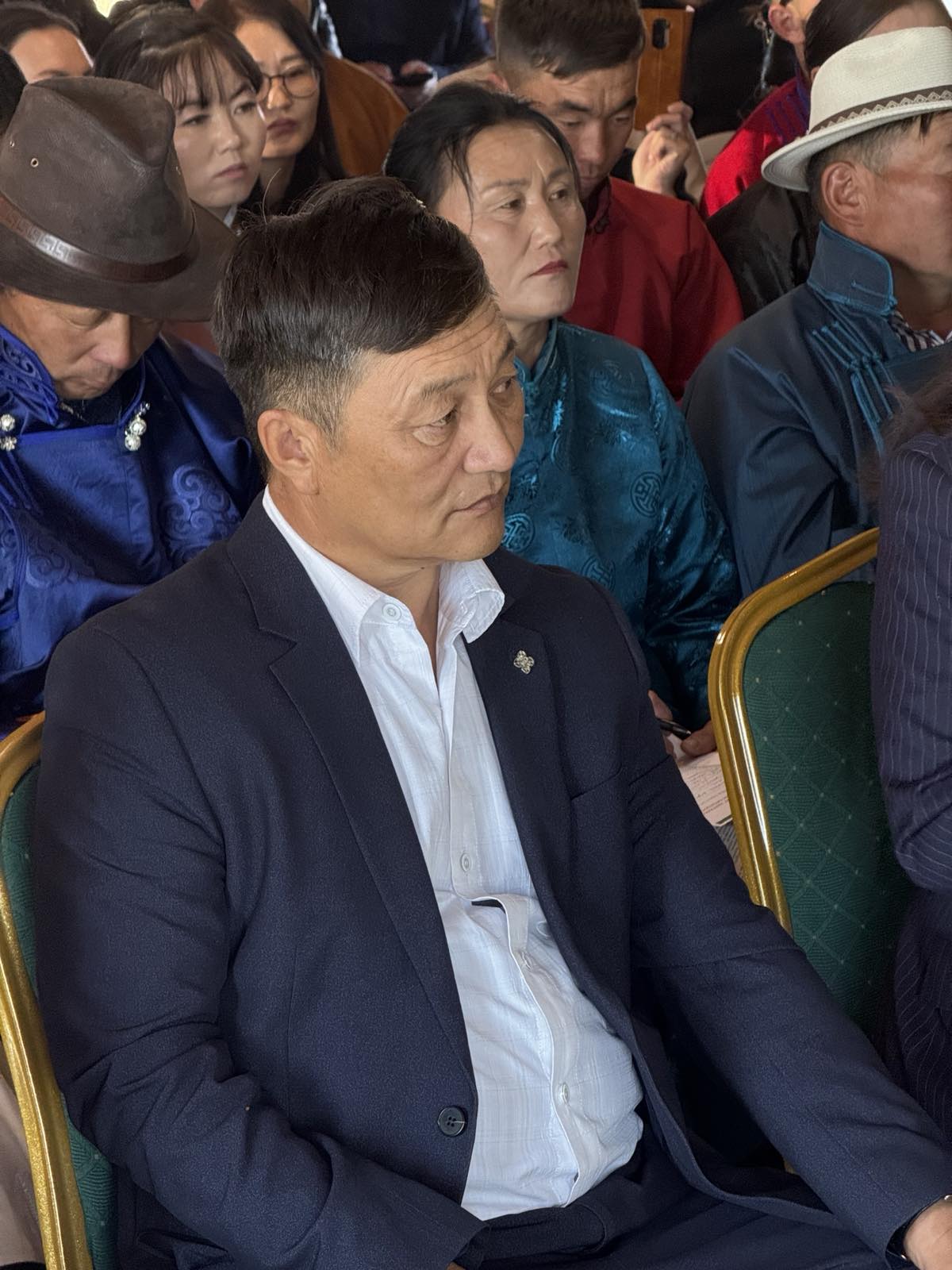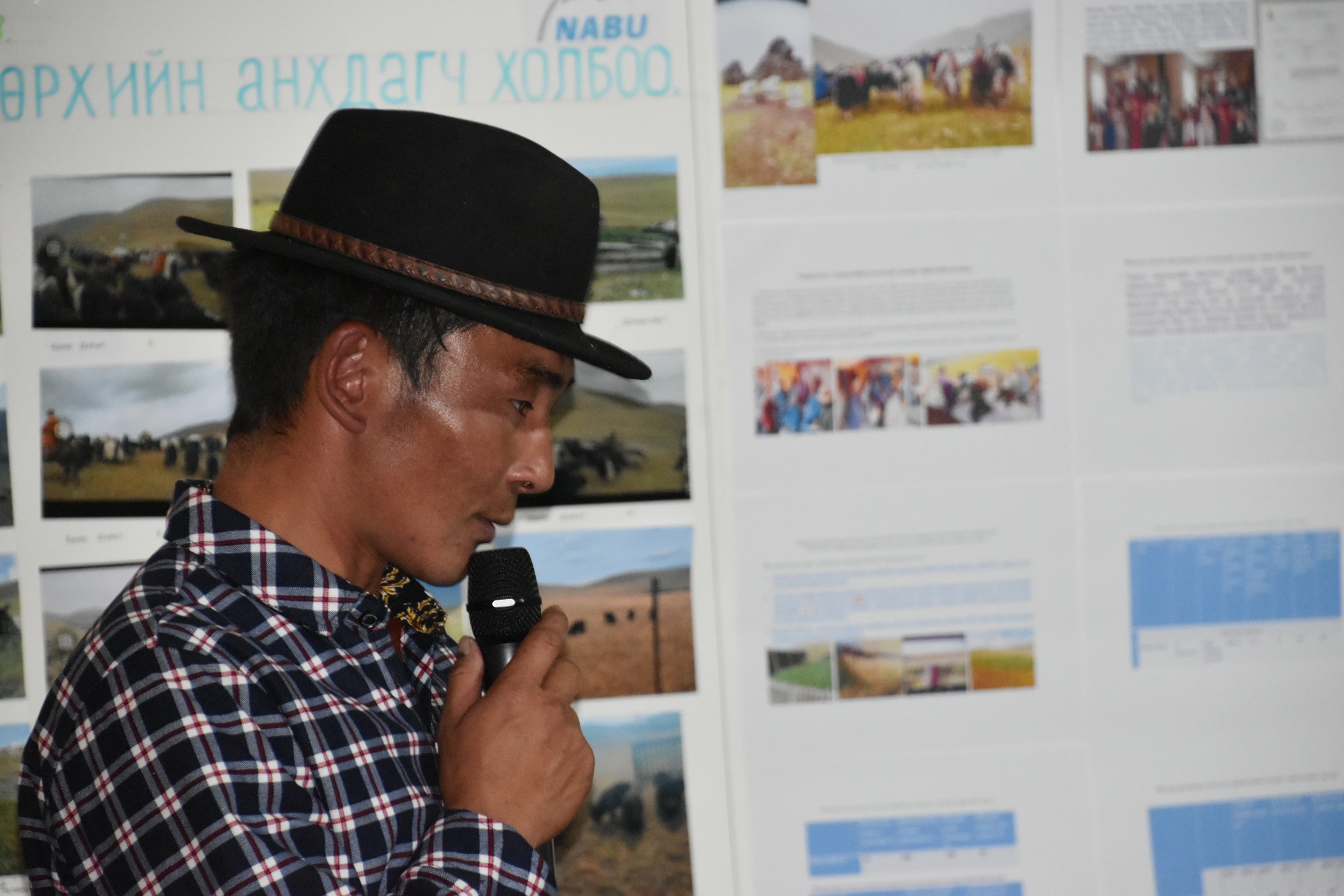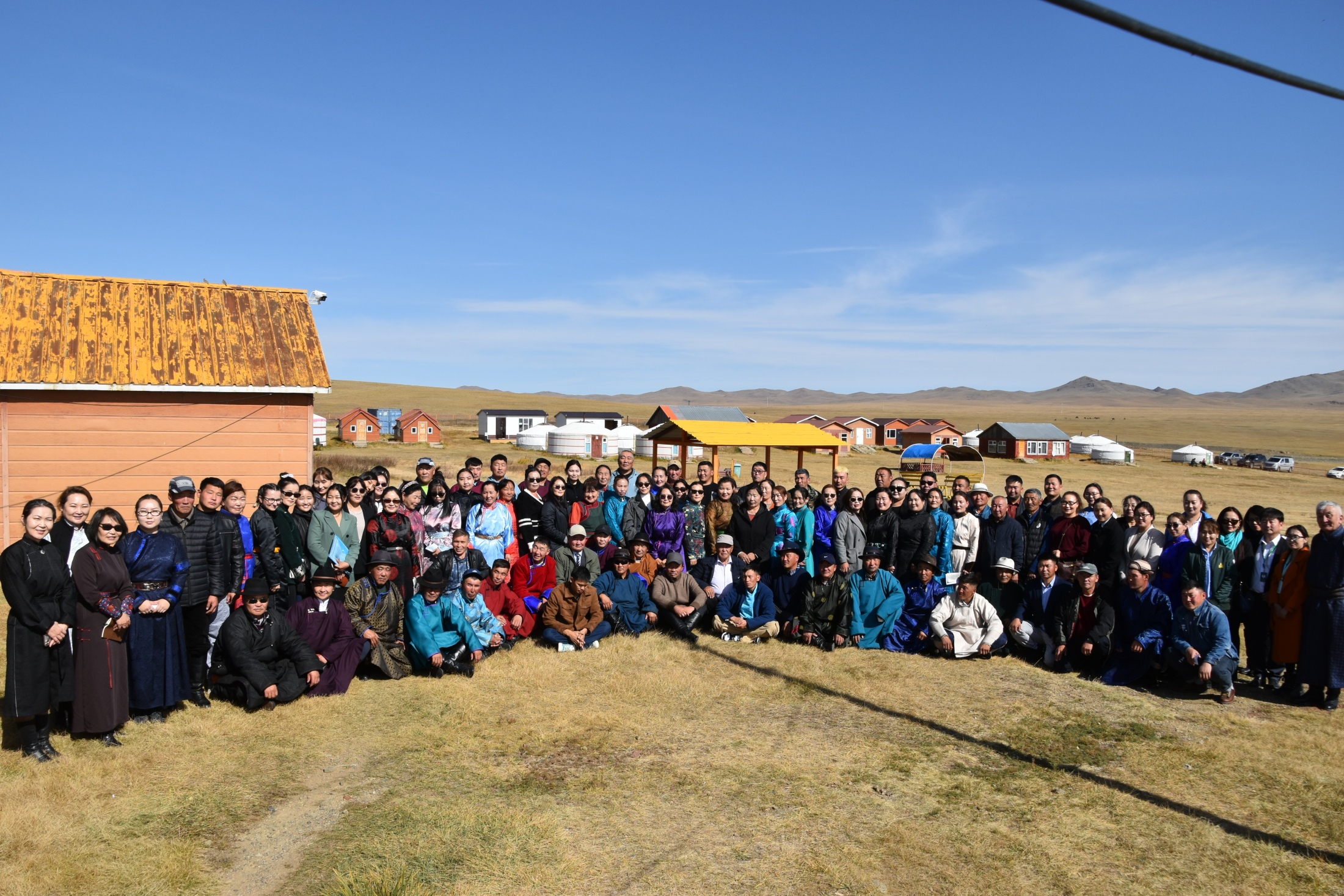The 8th National Pasture Forum was held under the theme: “The Participation of Women and Youth Herders in Ensuring the Sustainable Development of the Livestock Sector.”
The 8th National Pasture Forum was held under the theme: “The Participation of Women and Youth Herders in Ensuring the Sustainable Development of the Livestock Sector.”

On September 23–24, 2025, the 8th National Pasture Forum was held at the Ögöömr Mineral Spring Sanatorium in Taragt soum, Övörkhangai aimag under the theme: “The Participation of Women and Youth Herders in Ensuring the Sustainable Development of the Livestock Sector.” The forum brought together more than 140 participants, including representatives from government institutions, international projects and programs, local administrations, herder group representatives, Primary Herder Household Associations from provinces and soums, and national and international NGOs. During the forum, more than 20 presentations were delivered, 4 group discussions were held, and over 10 poster sessions were presented. The main sponsors were GIZ – German Society for International Cooperation, the German Nature Conservation and Biodiversity Society, Veterinarians and Agronomists Without Borders, and the Step EcoLab-II Project (AVSF, StepEcoLab-II). The event was co-organized by the Ministry of Food, Agriculture and Light Industry (MoFALI), the General Authority for Land Affairs, Geodesy and Cartography, the Governor’s Office of Övörkhangai aimag, the Governor’s Office of Taragt soum, the Mongolian University of Life Sciences, The Nature Conservancy (TNC), Wildlife Conservation Society (WCS), Ecofarm, ASPIDS, ADAPT, the Zoological Society of London, Khaan Bank, State Bank, and herder associations from 19 aimags.

This year’s forum was distinguished by its focus on the pressing issues faced by women and young herders, and it was organized in preparation for the International Year of Rangelands and Pastoralists in 2026. In addition, two women herders were selected to represent Mongolia at the Asian Women Herders’ Regional Conference.

The forum adopted a 22-point set of recommendations addressed to the Government of Mongolia, the central administrative authorities responsible for agriculture and social protection, local self-governing bodies, governors at all levels, Primary Herder Household Associations, and self-governing herder organizations. These recommendations included:
At the policy level: Improve supporting regulations under the newly adopted law on pasture use contracts with Primary Herder Household Associations to ensure sustainable use, restoration, and protection of pasturelands; develop and implement a gender policy for the agriculture sector to increase the participation of women and youth in livestock development; conduct baseline health studies of herders and implement medium- and long-term health programs; provide state financial support for livestock breeding and technological units; establish a traceability system for livestock products to ensure food safety; revise the livestock head tax law; and include herder livelihood and gender issues in soum governors’ action plans and long-term development programs.

With stakeholder participation and support: Strengthen animal feed resources; disseminate innovative technologies for livestock breeding and genetic improvement; increase access to green loans for rural producers; improve herders’ financial literacy; implement programs in tourism, handicrafts, and product diversification; ensure local administrations provide monitoring and support for the implementation of the Responsible Nomadic Pastoral Livestock Good Practice Standard; support business development for young and women herders; facilitate marketing and sales of members’ livestock products; and implement climate adaptation initiatives such as establishing ponds and preparing hay and fodder, in collaboration with local government and NGOs.
At the global level: Contribute to the timely implementation of Mongolia’s commitments under the Paris Agreement of the UN Framework Convention on Climate Change; actively participate in global efforts to mitigate climate change impacts, achieve the Sustainable Development Goals (SDGs), and preserve the nomadic cultural heritage and environmentally friendly pastoral traditions to pass on to future generations, in line with the UN General Assembly’s declaration of 2026 as the International Year of Rangelands and Pastoralists.

